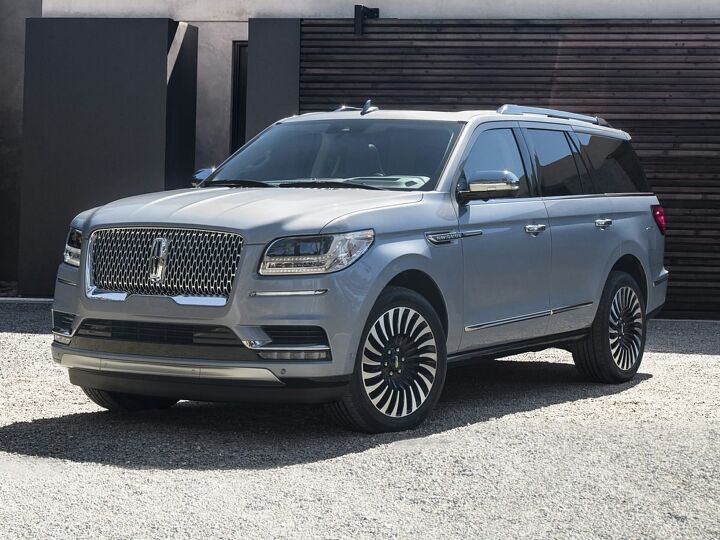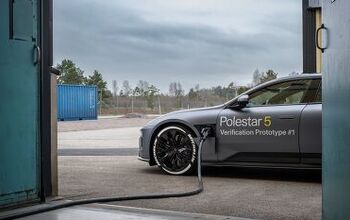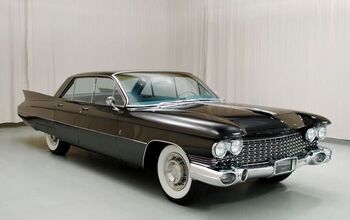A Lofty Goal for Lincoln

Despite the reborn Aviator stumbling out of the gate this past summer, the Lincoln brand otherwise had a good year. Sales rose 8.3 percent in 2019, making it the best year for the resurgent brand since 2007.
Lincoln brass see an even better year ahead, projecting a retail sales bump of 20 percent.
That figure comes by way of Automotive News and the recent NADA dealer-palooza in Las Vegas. There, Lincoln dealers expressed discontent over the looming eradication of sedans from the brand’s lineup. Executives seem nonplussed by the impending death of the faltering MKZ and Continental, however, claiming the strength of its crossover and SUV lineup will propel the brand to even greater heights in 2020.
It’s definitely where the market’s heading, and it’s where Lincoln’s strength now lies. The thinking is that the Aviator, with kinks ironed out and a full year of sales under its belt, will garner significant volume for the company, joined by the new-for-2020 Corsair (formely MKC) and the plug-in variant arriving later this year. The Corsair Grand Touring goes on sale this summer.
There’s reason for both optimism and concern. While Lincoln cars are indeed losing popularity (combined sales of the MKZ and Continental fell 15 percent in 2019), they still make up 22 percent of the brand’s sales. Come 2021 and thereafter, that volume will need to be replaced by utility vehicles.
Lincoln’s CUV/SUV growth was an impressive 17.2 percent last year, and hard not to see that number growing in 2020. Nautilus (née MKX) sales rose 11 percent in 2019, the model’s best showing since its first full year on the market (2007). The Aviator, though slow to make it to customers, still managed 6,424 sales in the final quarter of 2019 — more volume than the MKZ and Continental combined.
The MKT, a darling of livery stables everywhere, ended production late last year, though the model’s fleet-only nature means its death won’t weigh on Lincoln’s retail projections.
Meanwhile, the range-topping Navigator posted a 4.6-percent gain for the year, enjoying its best annual tally since 2007. A threat arises, however, in the form of the 2021 Cadillac Escalade due out later this year. All-new, with a independent rear suspension and an optional six-cylinder diesel, the upcoming Escalade boasts a gigantic dash screen and significantly improved interior volume.
Lincoln will no longer be the new kid on the block in that segment.
[Images: Lincoln]

More by Steph Willems
Latest Car Reviews
Read moreLatest Product Reviews
Read moreRecent Comments
- SilverCoupe Tim, you don't always watch F1 as you don't want to lose sleep? But these races are great for putting one to sleep!I kid (sort of). I DVR them, I watch them, I fast forward a lot. It was great to see Lando win one, I've been a fan of McLaren since their heyday in CanAm in the late '60's.
- Cprescott The problem with this fable by the FTC is:(1) shipping of all kinds was hindered at ports because of COVID related issues;(2) The President shafted the Saudis by insulting them with a fist bump that torqued them off to no end;(3) Saudis announced unilateral production cuts repeatedly during this President's tenure even as he begged to get them to produce more;(4) We were told that we had record domestic production so that would have lowered prices due to increased supply(5) The President emptied the strategic petroleum reserve to the lowest point since the 1980's due to number 3 and then sold much of that to China.We have repeatedly been told that documents and emails are Russian disinformation so why now are we to believe this?
- Ollicat Another Biden attempt to say, "Look over there!"
- Kjhkjlhkjhkljh kljhjkhjklhkjh Who cares. Price of gas is not the issue. spending an extra 100$ a month over 4 tanks of gas is not the issue.this a political scam to distract really dumb people from the real issue. if rent and house payments were not up by 50% to as high as 150% higher in a ton of locations, then paying an extra 100$ in gas would be annoying but not really an issue. But the real-estate market with hedge fund investors, power-relator groups bought a ton of houses and flipped them into rentals and jacked up the rates uplifting the costs on everything else. and ironically no-one seems to be in any hurry to build more houses to bring those costs down because supply and demand means keeping less houses available to charge as much as you want. It is also not the issue as a secondary issue is child care costs and medical... again 100$ extra per month in gas is *nothing* compared to 800$ a month in ''child care'' and 300$ per visit to the doctor office, 300$ for a procedure less dentist trip..
- Ajla Is there something proprietary or installed on the moon with these that I'm not aware of?



































Comments
Join the conversation
ditching alpha numerics for actual names has been a big plus. no one aspires to a XTanything.
I looked at buying a Navigator Black Label at dealerships in two different states, and I visited one of the Lincoln Experience Centers. The dealers are completely unprepared to deliver service at luxury brand standards. The incompetence at all three places had me running away. As much as I liked the vehicle, I saw only aggravation ahead if I bought one.